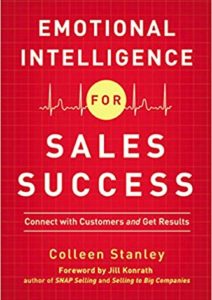Probably every salesperson at one time or another is derailed by an objection during a sales call. There is an endless variety of them–for example, “Why is your price so much higher than that of your competitor?” Or “We think we can do this in-house.” Or the ever-popular “We actually need to delay this for a few months.”
When salespeople encounter objections they often go into fight-or-flight mode, and the result isn’t pretty. They start justifying, overselling, defending and discounting in a desperate attempt to retain the prospect’s interest. Sales team inability to handle objections costs companies thousands of dollars a year.
What can be done?
Teach Them to Bring Up Objections Before the Prospect
One positive thing about objections is that they are predictable. Conduct a whiteboarding session with your sales team. Ask them to write down all the objections they hear from prospects and clients. (I promise that your sales team will be able to fill a whiteboard with objections.)
Now, ask your team this powerful question: When would you like to know about these objections? Overwhelmingly, they want to know sooner rather than later. So this is where your teaching begins.
Salespeople often are reluctant to bring up the objection. They mistakenly think they will plant a seed of doubt in the prospect’s mind. Well, your prospect already has thought of several reasons not to do business with you, many of which are based on false data or a previous experience with another vendor.
Salespeople that bring up the objections create truth-telling and high-credibility sales conversations.
They don’t look like they are trying to hide anything. By bringing up the objections, the salesperson has an opportunity to figure out the real reason behind the objection.
Effective and emotionally intelligent salespeople avoid being put into a fight-or-flight position. They bring up the obvious objection, which might sound like this: “Carolyn, many times when I meet with business owners like yourself, the real question to be addressed is, ‘Can we do this ourselves? Do we really need to outsource?’ Why don’t we look at both the pros and cons of outsourcing and at the end of our conversation, you and I should have a good idea of the best direction to take.” This becomes a partner conversation, not a desperate, I-need-to-hit-my-quota conversation.
Stop avoiding the obvious and predictable objections during a sales meeting. Bring up the objection. By doing so, you will look like the professional you are.
Pipeliner CRM empowers salespeople to precisely handle objections. Get your free trial of Pipeliner CRM now.












Comments